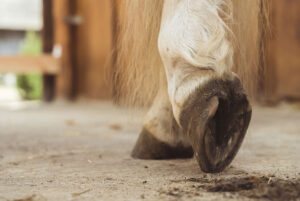Vesicular Stomatitis Detected in New Mexico
On April 27, the USDA’s National Veterinary Services Laboratories (NVSL) in Ames, Iowa, confirmed the finding of vesicular stomatitis virus (VSV) in horses at one premises in Grant County, N.M. This is the first confirmed case of vesicular
- Topics: Article, Vesicular Stomatitis
On April 27, the USDA’s National Veterinary Services Laboratories (NVSL) in Ames, Iowa, confirmed the finding of vesicular stomatitis virus (VSV) in horses at one premises in Grant County, N.M. This is the first confirmed case of vesicular stomatitis in the United States in 2005.
Vesicular stomatitis is a viral disease that primarily affects horses, cattle, and swine. Vesicular stomatitis virus has a wide host range and can occasionally infect sheep and goats. In affected livestock, VSV causes blister-like lesions to form in the mouth and on the dental pad, tongue, lips, nostrils, hooves, and teats. The blisters swell and break, leaving raw tissue that is so painful that infected animals generally refuse to eat and drink and show signs of lameness.
Severe weight loss usually follows, and in dairy cows a severe drop in milk production commonly occurs. Affected dairy cattle can appear to be normal and will continue to eat about half of their feed intake.
The affected premises has six horses and approximately 110 head of cattle
Create a free account with TheHorse.com to view this content.
TheHorse.com is home to thousands of free articles about horse health care. In order to access some of our exclusive free content, you must be signed into TheHorse.com.
Start your free account today!
Already have an account?
and continue reading.
Related Articles
Stay on top of the most recent Horse Health news with


















